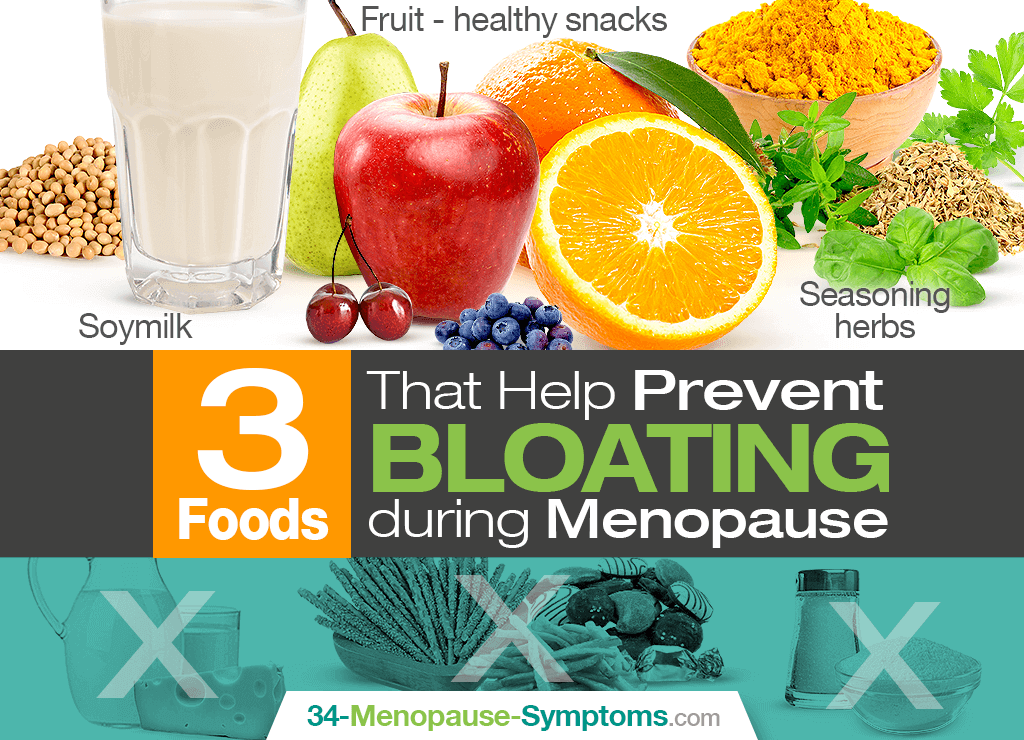Many women experience bloating during menopause, and this is mainly due to the hormonal imbalances that can occur during this time. It is harmless and does not lead to any health problems, but can nevertheless be highly distressing. There are many who feel embarrassed by the physical signs of bloating. Fortunately, there are ways to deal with it. Read on to discover more about what bloating is and what kind of foods you can eat in order to prevent it.
What Is Bloating?
Bloating is a feeling of fullness or tightness in the abdomen and normally disappears on its own after a little while. Some women experience it right after eating, whereas others will notice that their stomach gradually distends over the course of the day. It can result in sufferers feeling uncomfortable and fatigued, and often means that there is trapped gas or water in the body. By eating the right foods and avoiding others, it is possible to prevent bloating.
Foods That Help Prevent Bloating
Eating the right foods are essential to good health, and will also prevent trapped gas or bloating. The following foods are thought to be effective at reducing bloating.
Fruit
Eating plenty of fruit in the place of unhealthy snacks means that your body is getting the nutrition it needs. By eating fruits, which are full of fiber, you are automatically cutting down on the amount of junk foods consumed, and junk foods are known to cause bloating. Fruits also keep you fuller for longer, and so by eating these, you are not eating as much during the day, and there is less pressure being put on the digestive system.
Soymilk
Many people have an intolerance to dairy - also called lactose intolerance - and these intolerances are not always known. Therefore, it can often be the case that milk is to blame for the bloating during menopause, and not menopause itself. For this reason, switching to soymilk or some other substitute should solve the problem. In addition, soy contains phytoestrogens, compounds that can help raise estrogen levels.
Herbs
Herbs are a tasty alternative to salt, so they can be used to season foods. Although most herbs do not actually have a direct effect on bloating, their use in food means that the person is consuming less salt, which is a known precursor to bloating. Salt should be avoided because it causes cells to retain water, and this water retention often results in a tight feeling.
Bloating is uncomfortable and sometimes painful, so it is worth finding solutions to help prevent it if you find it has become a problem during menopause. By switching diet and replacing certain foods by healthier options, it is possible to prevent bloating and have a comfortable menopausal transition.
Sources
- American College of Gastroenterology. (2014). Digestive Health Tips. Retrieved December 18, 2014, from http://patients.gi.org/topics/digestive-health-tips/
- Mayo Clinic Staff. (2012). Women's Health. Retrieved December 18, 2014, from http://www.mayoclinic.org/healthy-living/womens-health/in-depth/water-retention/art-20044983
- National Health Service UK. (2014). Beat the Bloat. Retrieved December 18, 2014, from http://www.nhs.uk/Livewell/digestive-health/Pages/beat-the-bloat.aspx
- National Institutes of Health. (2012). Gas - Flatulence. Retrieved December 18, 2014, from http://www.nlm.nih.gov/medlineplus/ency/article/003124.htm
- Northrup, C. (2006). The Wisdom of Menopause. New York: Bantam Dell.
- Temple University School of Medicine. (2004). Section of Gastroenterology. Retrieved December 18, 2014, from https://www.temple.edu/medicine/departments_centers/clinical_departments/GasintheDigestiveTract.htm




